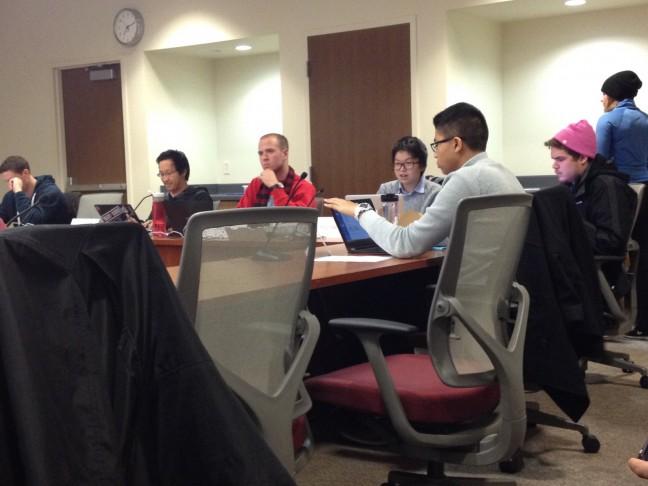Following a pattern of proposals from an Associated Students of Madison committee to increase student hourly wages in various divisions across campus in past months, they will now await the chancellor’s approval beginning April 1.
Student Service Finance Committee Chair Devon Maier said members in the current year’s session have turned toward addressing the competitiveness of student wages in student organizations funded through allocable fees, which he said largely have not been touched since 2007.
“It’s time for us to catch up, especially with regard to tuition rising,” Maier said. “It’s an opportunity for students to still do this type of work while earning a wage that’s competitive that can go toward paying their [student] debt.”
In 2015, SSFC has primary control over allocating $1,072,683.36 through the General Student Services Fund, which funds various student organizations. In 2015, total allocable fees amounted to $7,540,212.25, which mainly funds ASM branches and committees. Though SSFC allocates this funding, the chancellor is still consulted about these decisions.
Non-allocable fees are primarily controlled by the chancellor, but SSFC can make recommendations. Those fees amount to $36,749,940 in 2015.
Additionally, SSFC has encouraged wage increases for organizations receiving non-allocable funds such as Recreational Sports and the Wisconsin Union. Upon seeing disparities in hourly wages compared with university housing and libraries on campus, SSFC recently approved recommendations to increase hourly wages for Rec Sports and the Union despite the chancellor having the final say.
Both Rec Sports and the Union are funded by non-allocable fees, according to SSFC’s segregated fee breakdown.
In response, on Feb. 24, SSFC recommended an increase in segregated fees for Rec Sports to largely cover wage increases. Rec Sports Director John Horn said 80 percent of the increased fees will go toward wages while the remaining twenty percent will cover operational costs.
Rec Sports participated in a wage increase study, which provided them with “alarming results,” Horn said. Entry level wages for Rec Sports employees are currently $7.45 per hour, while student supervisor hourly rates are between $8.50 and $9.00, he said.
Horn said these are “too low” compared with University Housing, where starting hourly wages are between $8.50 and $8.80 and student supervisors’ are $9.55.
Horn said he started hearing from students in the fall who were also employed by housing or the Union who told him they were making over a dollar more per hour at these facilities.
“Rec Sports’ wages were pretty low,” Maier said. “With the wage increase, it’ll help them. The Union’s wages have been going up. This is us keeping up and remaining competitive in that sense.”
Even though the chancellor has precedence over approving any sort of increase in non-allocable fees, SSFC saw it as a chance to continue their push for competitive wages across campus, Maier said.
According to Horn, with SSFC’s approval of a segregated fee increase of $5.00 per student per semester, hourly rates will be comparable to University Housing.
In December, SSFC recommended an hourly wage of $10.50 for entry level positions in student organizations funded by the General Student Services Fund, raising student segregated fees $0.10 each semester.
Both Horn and Maier remained confident that when April 1 arrives, the chancellor will heed SSFC’s recommendations despite proposed state budget cuts to UW.
“From what I’ve heard from SSFC and ASM members, higher student wages are a priority for the student government,” Horn said. “I can’t imagine [the chancellor] would not [approve them], but these are tough times right now so we’ll have to wait and see.”














